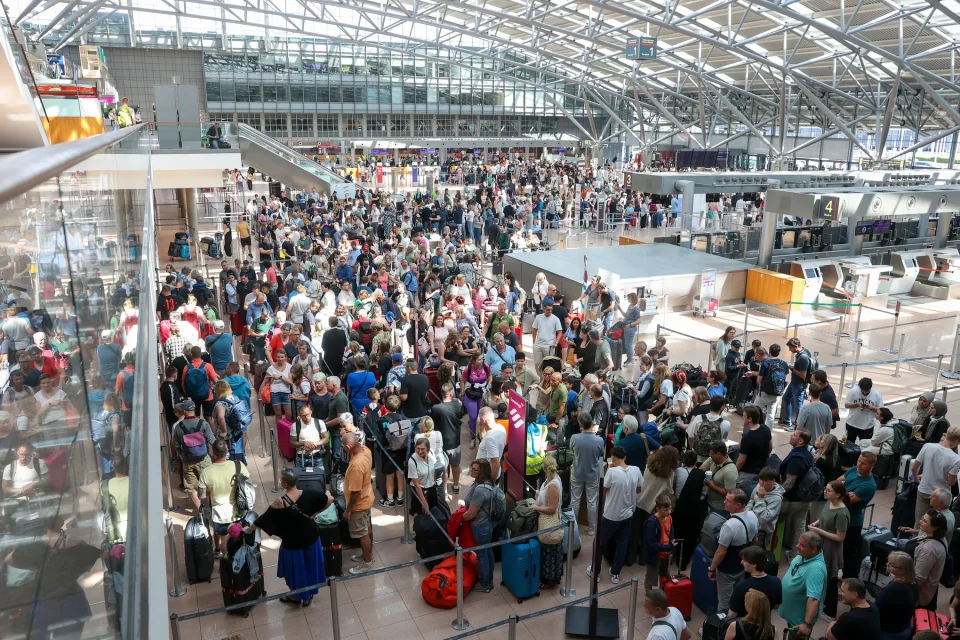Airlines, banks and broadcasters were among the companies around the world reporting disruptions, citing technical issues.
Businesses, websites and airlines struggled to slowly recover on Friday from an extensive global technology outage that took down airlines, medical services, TV broadcasts, banks and scores of other businesses and services around the world. It was a stunning example of the fragile dependence the global economy has on certain software and the cascading effect it can have when things go wrong.
The outage was attributed to CrowdStrike, a cybersecurity firm whose software is used by scores of industries around the world to protect against hackers and outside breaches. A software update issued by CrowdStrike appeared to be at the root of the problem, resulting in crashes of machines running the Microsoft Windows operating system.
“This is not a security incident or cyberattack,” said George Kurtz, the chief executive of CrowdStrike. “The issue has been identified, isolated and a fix has been deployed.”
Here’s how the spillover effects are being felt all over the world:
-
Flights disrupted: U.S. airlines reported major disruptions across the country overnight, with many passengers stranded, though some carriers seemed to be recovering on Friday morning. At least five U.S. airlines — Allegiant Air, American, Delta, Spirit and United — had grounded all flights for a time, according to the Federal Aviation Administration.
-
Airport chaos: The issues were also being felt at airports around the world, including in Hong Kong, Sydney, Berlin and Amsterdam. At the Manchester Airport in Britain, there were long lines in the departures area as many machines at check-in counters were not working. Ryanair, one of the largest airlines in Europe, said it was experiencing disruption because of a third party IT outage that is “entirely out of our control.”
-
911 outages: In the U.S., the outage appeared to be affecting emergency 911 lines in multiple states, the U.S. Emergency Alert System said on social media. It said people experiencing emergencies should call the number for their local police or fire department. Most if not all of the problems appeared to be resolving themselves by mid-morning.
-
Broadcast issues: Many international television broadcasters also reported problems. In France, TF1 and Canal+, among the most watched, said in posts on X that they couldn’t go on air. “We’re all onstage, but there’s a gigantic breakdown in the control room” making it impossible to go live, Christophe Beaugrand-Guerrin, a TF1 presenter, wrote on X.
-
Largely unaffected: Some basic services, including major banks and grocery stores, appeared largely unaffected by the outages on Friday morning, at least in the United States. The Texas-based grocery chain H-E-B said all of its stores were open and operational, and a spokeswoman for the U.S. supermarket company Ahold Delhaize, which owns brands including Giant, Food Lion and Hannaford, also said stores were operating as usual.


